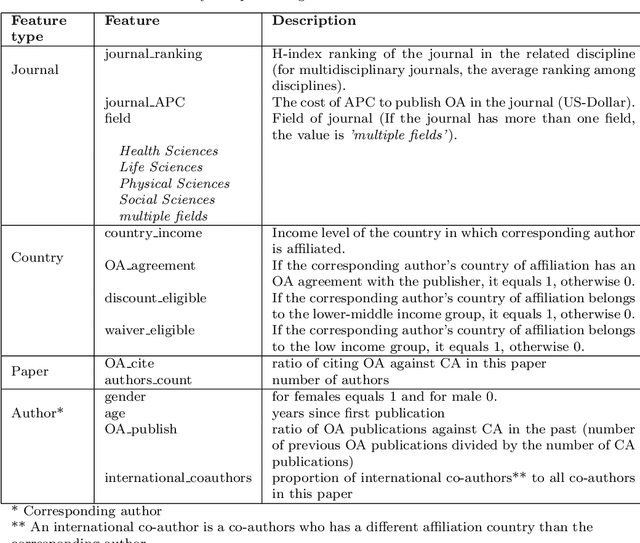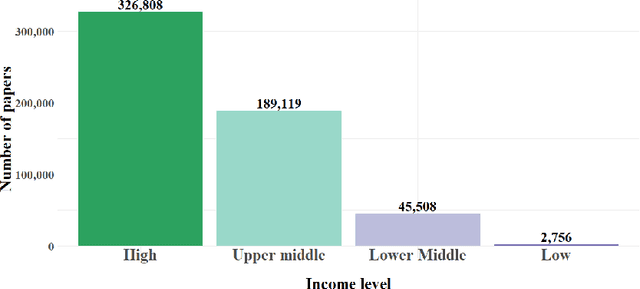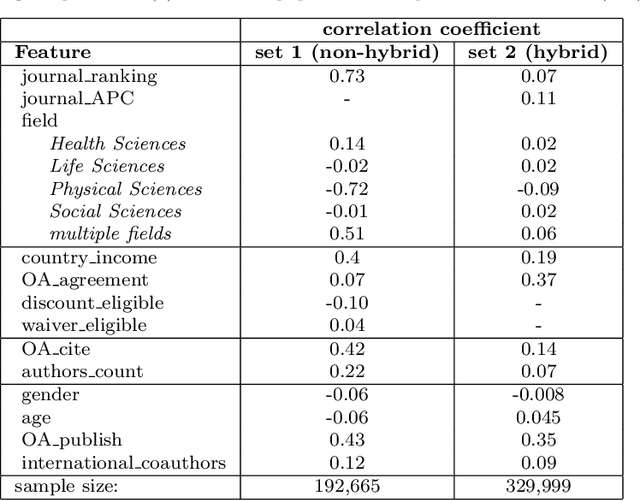Fakhri Momeni
Which Factors Drive Open Access Publishing? A Springer Nature Case Study
Aug 17, 2022



Abstract:Open Access (OA) facilitates access to articles. But, authors or funders often must pay the publishing costs preventing authors who do not receive financial support from participating in OA publishing and citation advantage for OA articles. OA may exacerbate existing inequalities in the publication system rather than overcome them. To investigate this, we studied 522,664 articles published by Springer Nature. Employing statistical methods, we describe the relationship between authors affiliated with countries from different income levels, their choice of publishing (OA or closed access), and the citation impact of their papers. A machine learning classification method helped us to explore the association between OA-publishing and attributes of the author, especially eligibility for APC-waivers or discounts, journal, country, and paper. The results indicate that authors eligible for the APC-waivers publish more in gold-OA-journals than other authors. In contrast, authors eligible for an APC discount have the lowest ratio of OA publications, leading to the assumption that this discount insufficiently motivates authors to publish in a gold-OA-journal. The rank of journals is a significant driver for publishing in a gold-OA-journal, whereas the OA option is mostly avoided in hybrid journals. Seniority, experience with OA publications, and the scientific field are the most decisive factors in OA-publishing.
 Add to Chrome
Add to Chrome Add to Firefox
Add to Firefox Add to Edge
Add to Edge